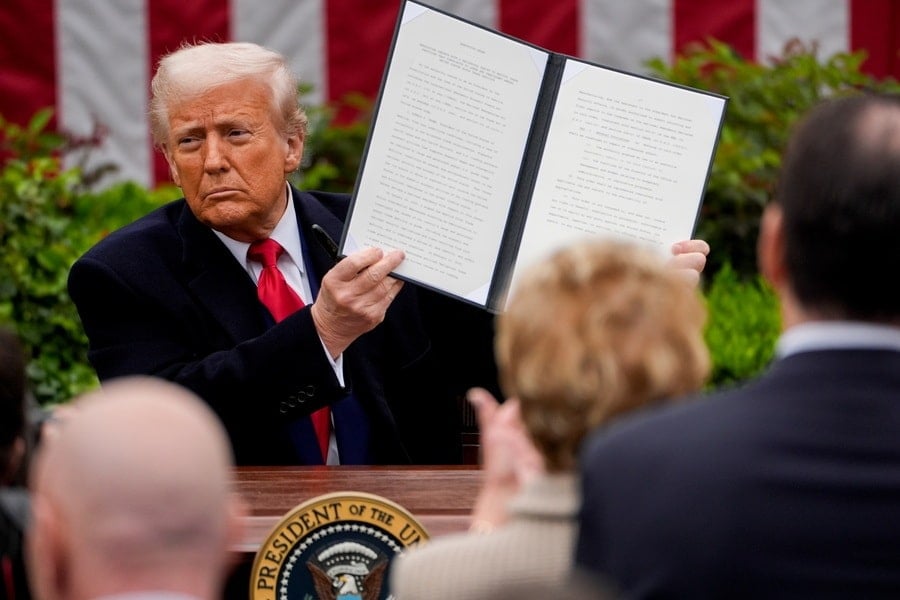

A federal trade court on Wednesday blocked Donald Trump from imposing sweeping tariffs on imports under an emergency-powers law. The ruling gave the White House 10 days to complete the bureaucratic process of halting the tariffs, although most are currently suspended anyway.
The ruling from a three-judge panel at the New York-based court of international trade came after several lawsuits arguing Trump has exceeded his authority.
“The Worldwide and Retaliatory Tariff Orders exceed any authority granted to the President by IEEPA to regulate importation by means of tariffs,” the court wrote, referring to the 1977 International Emergency Economic Powers Act.
“The court does not pass upon the wisdom or likely effectiveness of the president’s use of tariffs as leverage. That use is impermissible not because it is unwise or ineffective, but because [federal law] does not allow it,” a three-judge panel said in the decision.
The Trump administration has reportedly filed a notice of appeal, and White House officials responded to the ruling with public statements challenging the court’s authority in the case..
“It is not for unelected judges to decide how to properly address a national emergency,” Kush Desai, a White House spokesperson, said in a statement to Reuters.
“President Trump pledged to put America First, and the Administration is committed to using every lever of executive power to address this crisis and restore American Greatness,” he added.
Financial markets, in contrast, cheered the ruling. The US dollar rallied following the court’s order, surging against currencies such as the euro, yen and the Swiss franc in particular. Wall Street futures rose and equities across Asia also rose.
The Associated Press says that the ruling, if it stands, inflicts severe damage to Trump’s strategy to use steep tariffs to wring concessions from trading partners, draw manufacturing jobs back to US shores and shrink a $1.2tn US goods trade deficit, which were among his key campaign promises.
Without the instant leverage provided by the tariffs of 10 percent to 54 percent that Trump declared under the IEEPA, which is meant to address “unusual and extraordinary” threats during a national emergency, the Trump administration would have to take a slower approach of lengthier trade investigations under other trade laws to back its tariff threats.
The decisions of the Manhattan-based court of international trade, which hears disputes involving international trade and customs laws, can be appealed to the US Court of Appeals for the Federal Circuit in Washington, DC, and ultimately the US Supreme Court.
The political reaction in the US was swift, with Democrats celebrating the court ruling.
“I argued from the start that Donald Trump’s claim that he could simply decree sky-high new taxes on imported goods depended on mangling the Constitution beyond recognition,” said Ron Wyden, the senator from Oregon.
Gregory W Meeks, the top Democrat on the House Foreign Affairs Committee, said the ruling confirmed what had long been known – that “these tariffs are an illegal abuse of executive power.”
“Trump’s declaration of a bogus national emergency to justify his global trade war was an absurd and unlawful use of IEEPA,” he added.
However, Republican Stephen Miller, one of Trump’s closest White House aides, described the ruling on X as a “judicial coup” that he said was “out of control.”
Related: Trump Defiant as Tariffs Wipe Trillions Off Wall Street
